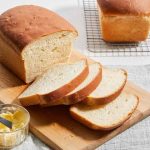Germany’s ministry of interior has urged telecommunication companies in the country to cease the inclusion of components from China’s Huawei (HWT.UL) or ZTE in their respective 5G core networks after the end of 2026.
This follows the German government’s decision to bar the use of critical components made by Chinese companies Huawei and ZTE in core parts of the country’s 5G networks in two steps.
According to the Germany’s Interior Minister, Nancy Faeser who made the announcement Thursday, critical components from Huawei and ZTE will be barred from 5G core networks by the end of 2026, while “critical management systems” from the two manufacturers in 5G access and transport networks must be replaced by the end of 2029.
Faeser noted that the decision followed security considerations that bothered on risks associated with critical components manufactured by Huawei and ZTE in German 5G cellphone networks, adding that the components had been carefully examined before the decision was reached and subsequently executed for the security of the German citizens.
The interior minister also stated that the German government has duly completed contracts with telecom companies in the country to effectively carryout the new order, noting that, in line with the agreement, network operators, including Deutsche Telekom (DTEGn.DE), Vodafone (VOD.L) and Telefonica Deutschland (O2Dn.H), (TEF.MC) still have time to replace critical parts of their operational infrastructure to fit into the provisions of the new agreement.
Faeser said, “we have examined the risks from critical components manufactured by Huawei and ZTE in German 5G cellphone networks very carefully.”
“With this, we are protecting the central nervous systems of Germany as a business location — and we are protecting the communication of citizens, companies and the state.”
The interior minister added that, “we must reduce security risks and, unlike in the past, avoid one-sided dependencies.”
“Today’s threats underline the significance of secure telecommunications infrastructure, particularly “with a view to dangers from sabotage and espionage,” she concluded.
Meanwhile, Chinese Foreign Ministry spokesperson Lin Jian, while speaking about Thursday’s expected announcement by the German government at a daily briefing in Beijing, said that Huawei and other Chinese companies have been building high-quality infrastructure for Europe and creating many jobs.
He stated that “there is no evidence that they endanger the national security of European countries.”
Lin Jian also stated that “Politicizing economic, trade and sci-tech issues will only undermine normal technical exchanges and cooperation and is not in the interest of any party.”




